Something weird and beautiful is happening in New York City.
Last week I attended the Malleable Software demo night at South Park Commons in Manhattan. The evening solidified some loose hypotheses that have been tumbling around my brain about the shifting geography of tech—not just in the migration of talent or funding ecosystems, but in the ways that New York’s distinct culture shapes its tech scene and the resulting technology it produces. I think it’s quite special.
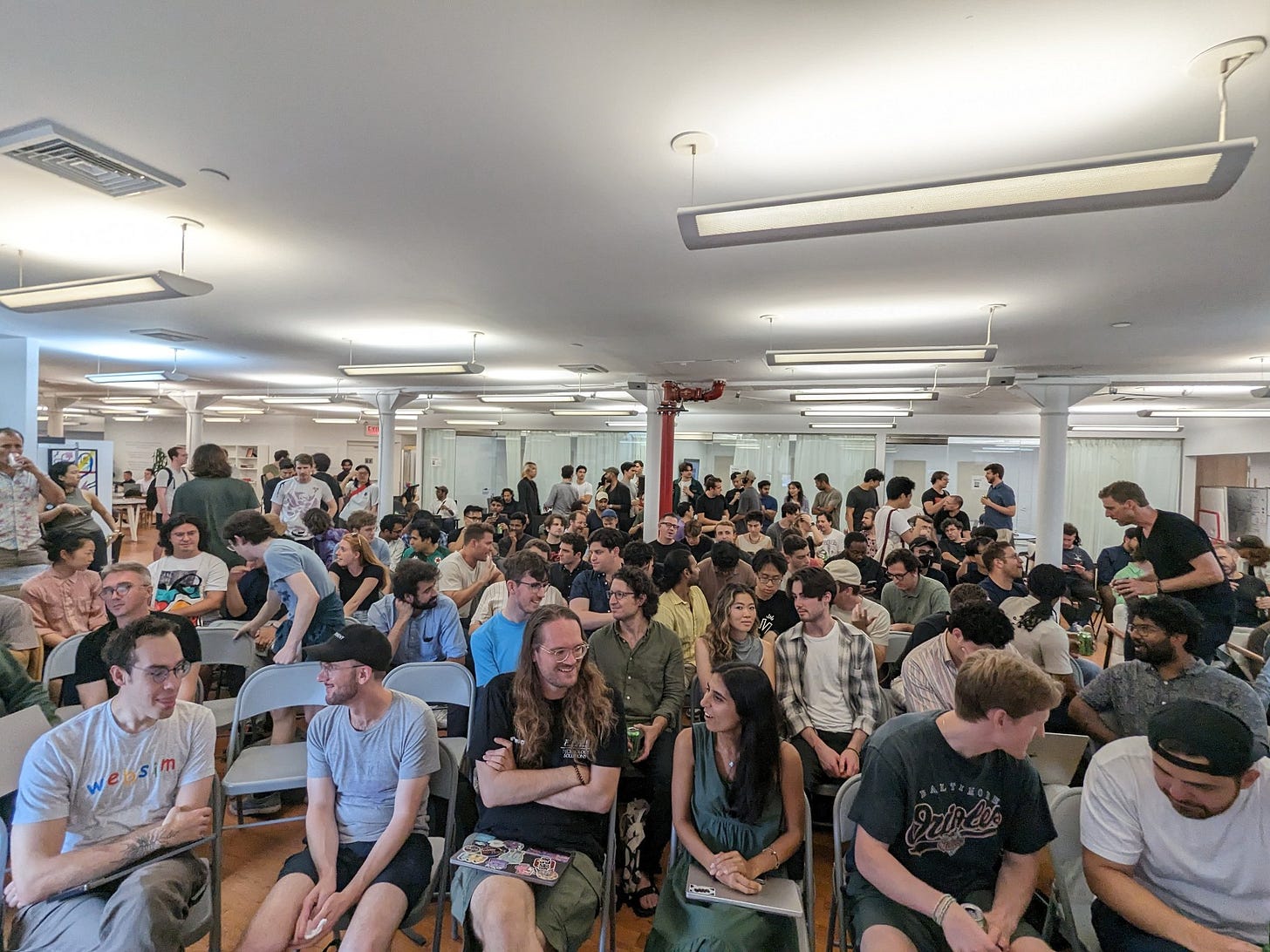
I spent most of the 2010s in the SF tech scene and working in Silicon Valley. Just as it is today, there was no question that California was the unrivaled epicenter of technical talent.
Since moving to Brooklyn in 2020, however, I’ve noticed the rumbling of an insurgent east coast tech scene playing by a different logic.
San Francisco remains the undisputed king of raw technical talent (the cracked 10x engineers, if you will). They’re the best in the world, no question. But among those who see technology as a means rather than an ends—an art as much as a craft—NYC has the edge.
I’ve seen this on the ground for some years now, but the Malleable Software demo night was the first time I realized the scale of this alternative tech scene. A room of over 200 people cheered on mind-bending demos from a legion of visionary New York tool builders. Rumor has it that this was only about half the people on the waitlist due to capacity limits. Linus Lee from Notion shared experiments visualizing the latent space of language models. Alice Albrecht of re:collect gave us a glimpse into the future of tools for thought. Tyler Angert demoed an AI-powered generative canvas with branch/merge capabilities. The list goes on. The room was a Where’s Waldo illustration of top tier creative technologists.
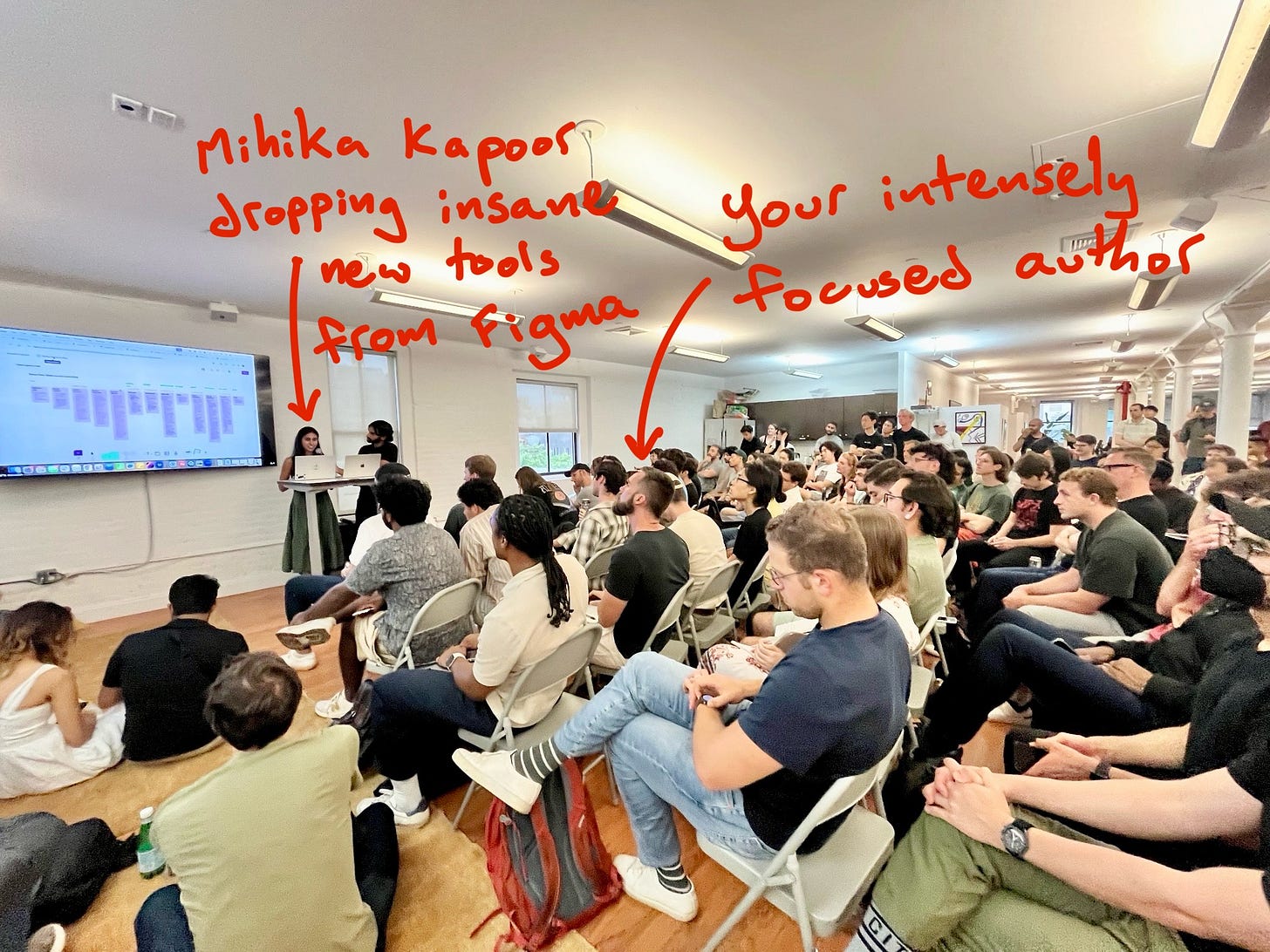
This surprisingly big microcosm reflected a broader culture. When I think of the New York tech scene, I think of people like Andrés Cuervo, Omar Rizwan, and Govind Manian at Folk Computer, a research lab for spatial operating systems.
I think of Brendan Schlagel, Celine Park, and Jared Pereira at Hyperlink Academy, a startup creating end user programming tools for learning and collaboration.
I think of Steve Krouse and Tom Macwright at Val Town, an end-user programming platform for social coding in the cloud.
Then there’s people like Max Bittker, Kelin Carolyn Zhang, Ryan Flomerfelt Mather, Charles Chamberlain, Taylor Baldwin, or Casey Tang. I don’t know what to call them. Creative technologists? Artists who code? Go play with Max’s super-fun 8-bit physics simulator Sandspiel or check out Kelin and Ryan’s Poetry Camera and you tell me.
I could list dozens more (especially if we include friends along the coast that come through NYC on frequent pilgrimage, like Jess Martin and Gordon Brander), but you get the idea.
A very distinct ethos is emerging in the NYC tech scene. These are technologists generally more inspired by the early democratic visions of computation—those of Doug Engelbart, Alan Kay, Ted Nelson, Seymour Papert, etc—and by the potential of human creativity than by the promise of unicorn market caps.1
“People are working on HCI in both SF and NYC, but in SF people are more interested in the Computer part, whereas in NYC people are more interested in the Human part.”
—Andrés Cuervo
To Andrés’ point, it’s illustrative that Partiful (an irl party planning tool) was founded in Brooklyn while Friend (an always-listening AI friend substitute) was founded in San Francisco.
Some of the NYC scene was inherited in the exodus from California over the last few years (and its certainly been nurtured by institutions like Recurse Center and ITP) but I think it’s also the direct result of a city where no industry truly dominates.
Compared to San Francisco, many more people in the NYC tech scene have domain experience outside of tech. The founders tend to be older. They have more friends outside of tech and a broader range of life experiences is represented within tech.
This all amounts to a close connection with a more representative slice of both people and businesses that I suspect hints at the future of tech’s geography at large.
I asked my friend Jared Pereira how he’d describe the NYC tech scene’s ethos and idiosyncrasies. He sees these connections with the outside world as a boost for ideas that appeal beyond the confines of the tech industry:
Given its deep well of hardcore technical talent and the Stanford/Berkeley CS program pipeline, I expect San Francisco to maintain its position as the place where tech infrastructure is built and foundation models are trained.
However, I suspect New York will become the place where that technology is turned into end-user facing products for an endless array of niches—precisely because NYC itself is an endless array of niches.
Thanks to Jared Pereira, Andrés Cuervo, and Agree Ahmed for sharing their perspectives on the community here to help form and sanity check the ideas in this post.
Creative and exploratory as it may be, it’d be a mistake to characterize the emergent New York tech scene as a charming gaggle of artist-types and indie hackers. It’s also serious business.
According to Pitchbook, 3 of the top 10 performing VC funds in the world are based in New York. Two are in the Bay Area.
The Bay Area currently accounts for 20.6% of all venture capital deals in the US, but NYC accounts for 14.7% and is on the rise.



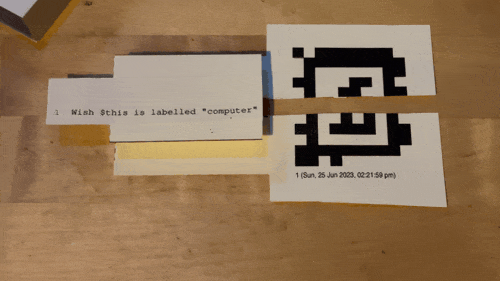

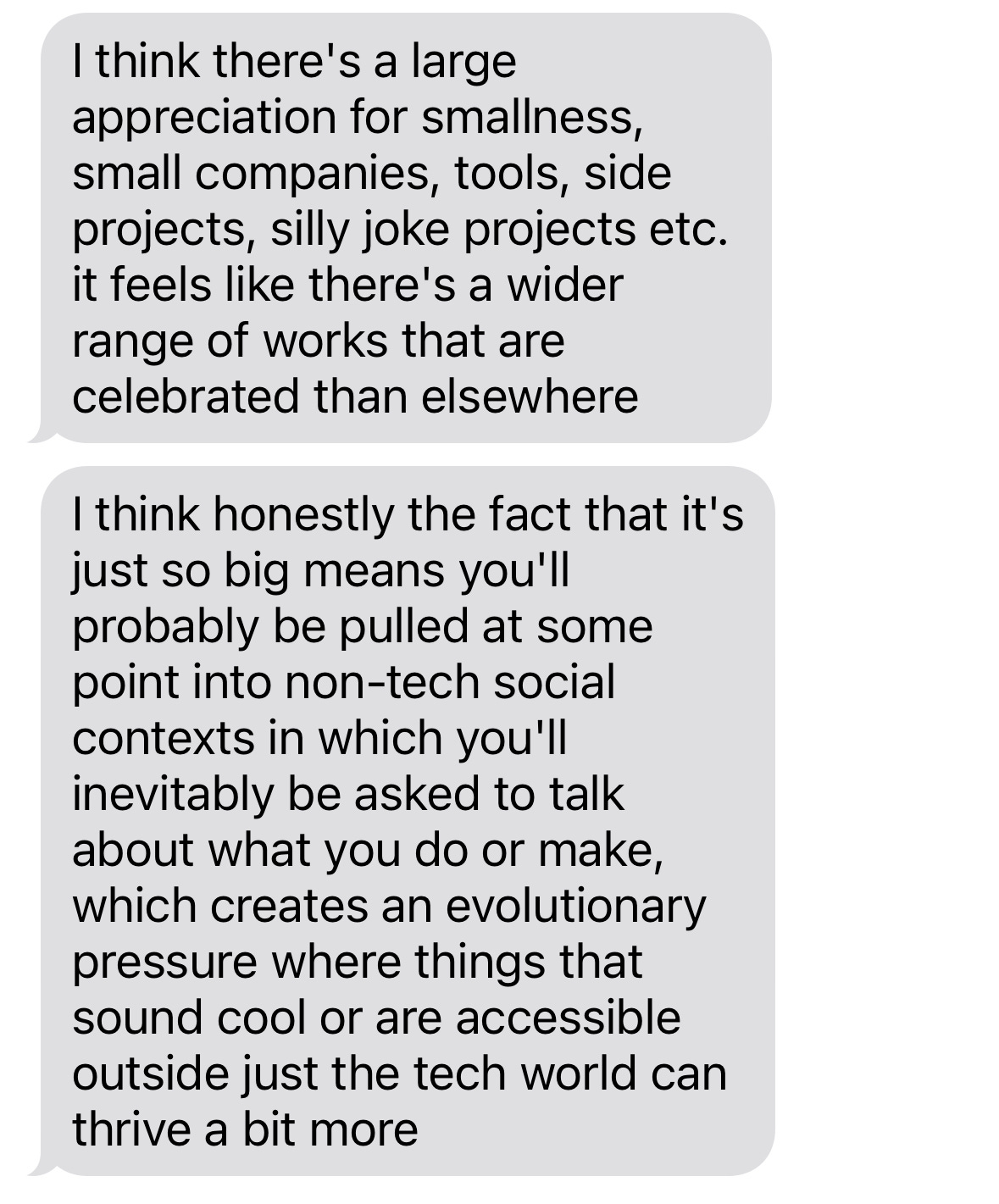
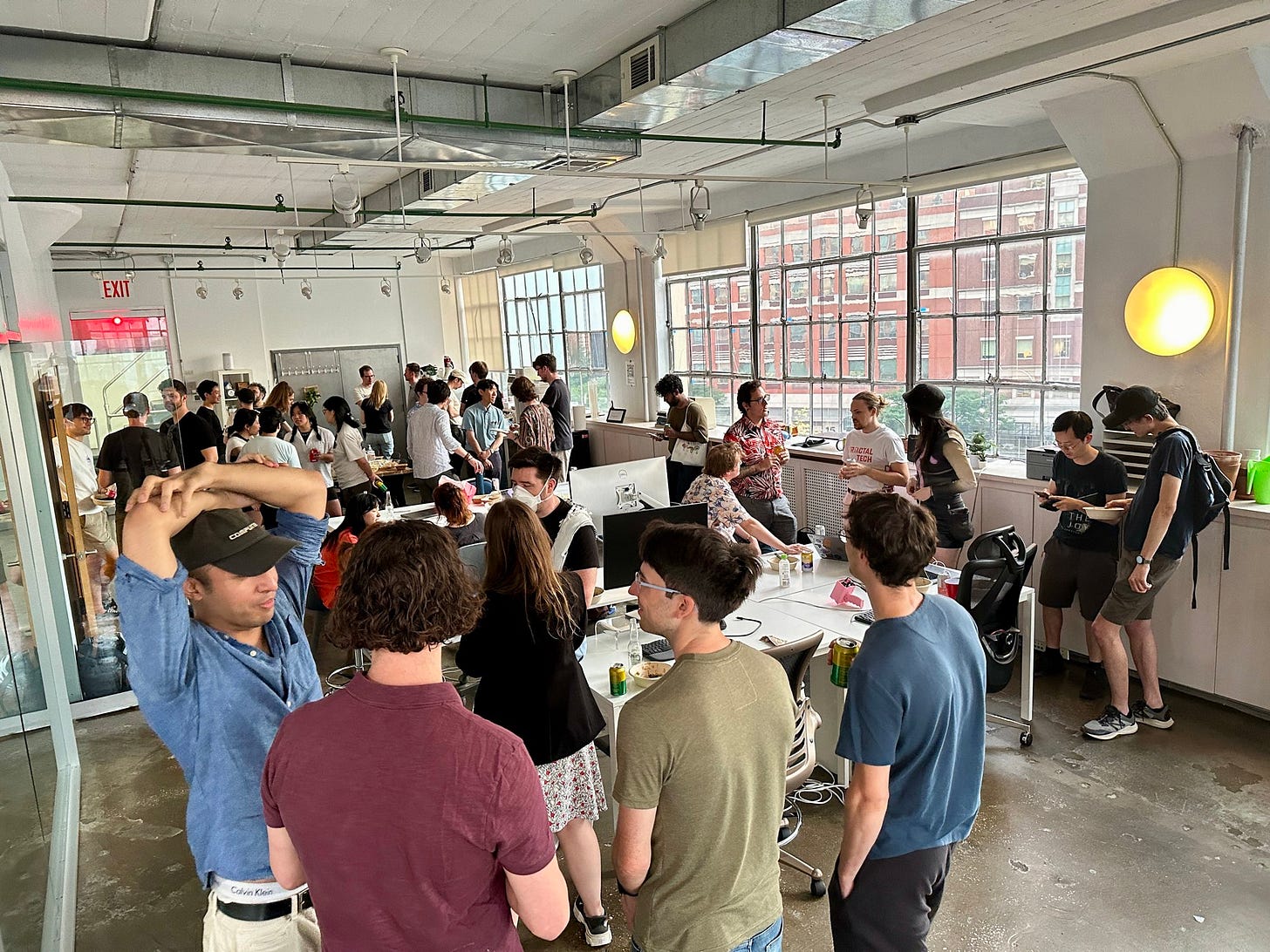
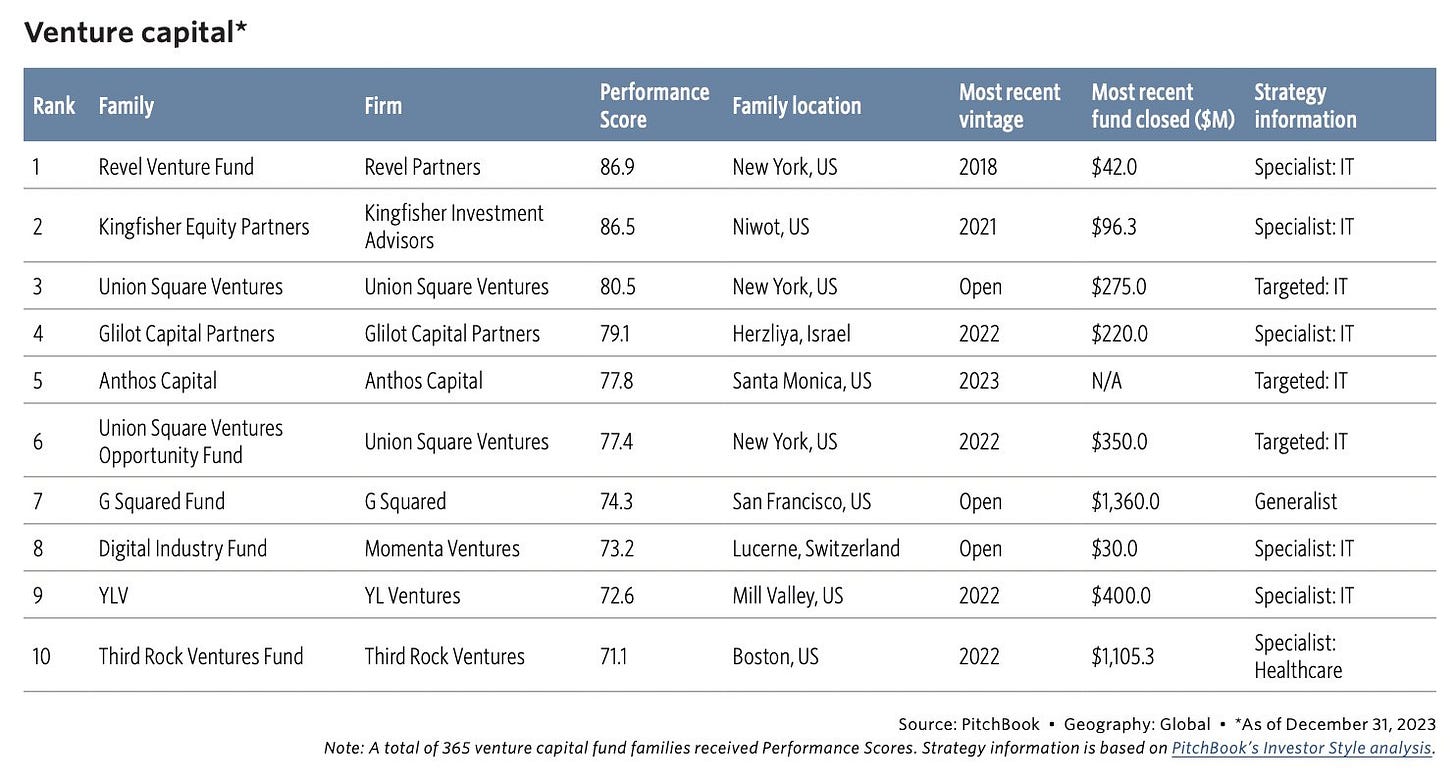

Awesome observation. I think of NYC and SF as the large nodes. Research Triangle Park and Austin are the sub-nodes. Each has their own unique vibe and (loose) focus but they are directly related. Margaret Wheatley identifies this as organizims as reorganizing.
Great to see a new perspective on NYC's uniqueness – feels like we need more of these running demo events which not only showcase some of these great projects, but also bring thoughtful technologists together, kinda like what Socratica does. Great post!